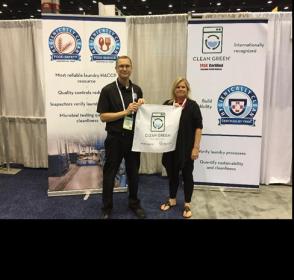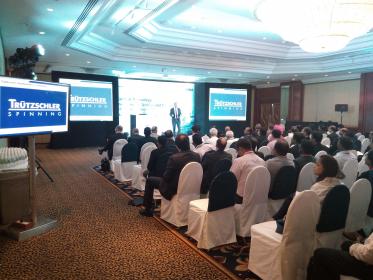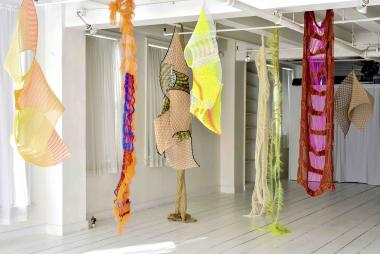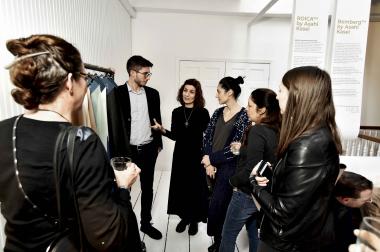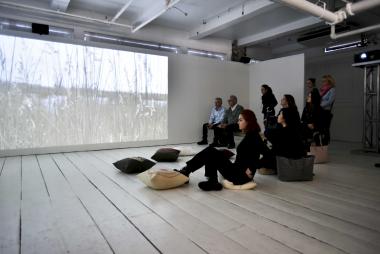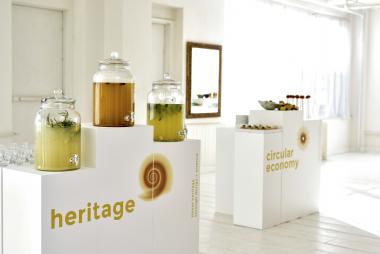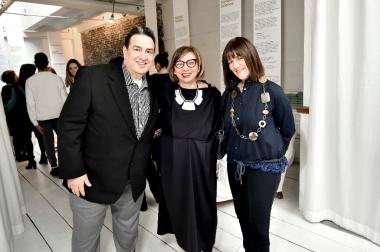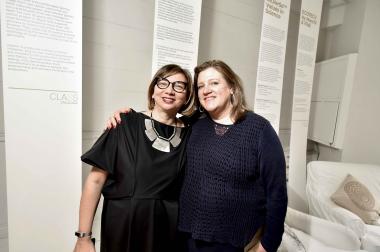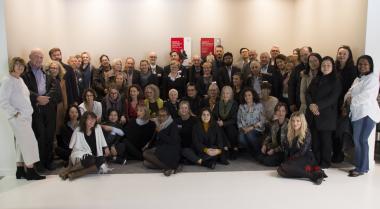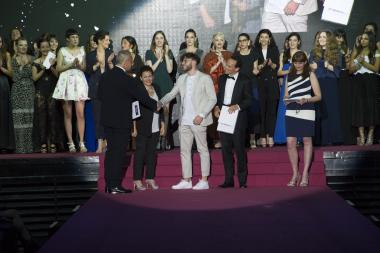TRSA Highlights Certifications at F&B Show
Attendees of the May 19-22 National Restaurant Show in Chicago learned that linen, uniform and facility services providers serving restaurants and other foodservice operations can be distinguished by earning third-party verification of their sustainability and cleanliness, as TRSA exhibited its Clean Green and Hygienically Clean Food Service certifications at the show.
More than 150 individuals viewed the exhibit, which screened a new animated video explaining the Clean Green designation. It’s now showing on TRSA’s YouTube page (https://www.youtube.com/watch?v=I-24iVCNRT0).
Depicting operations within a laundry, the video shows how contracting with a Clean Green certified provider delivers services restaurants need and gives them peace of mind from doing business with a sustainable provider. Clean Green operations comply with water and energy standards and demonstrate best management practices in supplying, laundering and maintaining textiles.
Visitors to the exhibit learned which providers serving these attendees’ home geographic areas are Clean Green certified and were encouraged to work with such a certified provider if not already doing so. Speaking with attendees also gave TRSA staff the opportunity to ask them about their experience with providers and, if currently under contract with one, its identity.
- 76 percent of those questioned indicate they currently use such a provider. Most could identify it by name
- 18 percent said they use an on-premises or home laundry for linen and uniform needs. Many of these respondents indicated they work for hotels, healthcare facilities, colleges or military bases with their own laundry equipment
- 6 percent said they use disposable products (napkins, wipers) instead of their reusable textile equivalents; most of these respondents are in quick-service restaurant operations
The TRSA display distributed copies of Sustainability: Finding the “New” Green in Your Restaurant Supply Chain, a 7-page guide to using a systematic approach to choose suppliers whose products/services are proven to be more sustainable than those of their competitors and whose own practices are more sustainable.
TRSA’s exhibit also kicked off a survey of restaurant management to determine their perceptions of table linen service as a plus for facility hygiene and service to diners. Results will help TRSA communicate to the restaurant industry the value of using Hygienically Clean Food Service certified providers in the hope that doing so becomes an industry standard.
Such certified laundries commit to cleanliness through third-party, quantified biological testing and inspection. This process eliminates subjectivity by focusing on outcomes and results that verify linens and uniforms cleaned in these facilities meet appropriate hygienically clean standards and best management practices for servicing full- and limited-service restaurants, hotels, hospitals, educational institutions and other locations where food is handled and served.
ABOUT CLEAN GREEN
Clean Green certification recognizes linen, uniform and facility services companies that demonstrate responsible leadership in sustainability and conservation by acknowledging commitment to improving water and energy efficiency and adoption of best management practices for reusing, reclaiming and recycling resources. Certified operations meet quality standards for effectiveness in conserving resources and minimizing environmental impact. Customers that use Clean Green certified companies to supply, launder and maintain linens, uniforms, mats and other reusable textiles can be assured that their provider maximizes sustainable practices.
ABOUT HYGIENICALLY CLEAN
Hygienically Clean certification demonstrates linen, uniform and facility services companies’ commitment to cleanliness through independent, third-party laundry plant inspection and quantified microbial testing. Inspection and re-inspection verify that items are maintained, washed, dried, ironed, packed, transported and delivered using best management practices to meet key disinfection criteria. Between scheduled and supplemental inspections, ongoing microbial testing quantifies cleanliness and indicates laundry process adjustments.
TRSA, Hygiencally Clean Healthcare National Restaurant Show linen uniform service Clean Green
TRSA


